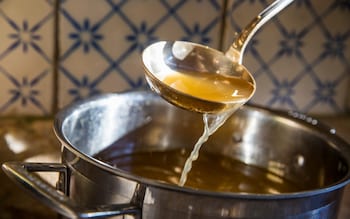If you’ve ever been to a festival, you’ll know that hygiene is not top of the priority list for many people.
And that means oral hygiene, as well as body cleanliness, can take a back seat, and teeth may not get brushed twice a day, or even once. And that can open you up to not only future dental problems, but smelly breath.
Dr Nigel Carter, chief executive of the Oral Health Foundation, points out that although not brushing your teeth can lead to smelly breath, the more serious consequences of poor dental hygiene are gum inflammation (gingivitis), which can lead to teeth loss over the longer term, and a build-up of plaque which can cause decay and cavities.
And before you think there simply won’t be any people who don’t clean their teeth for long periods, Carter recalls how he once asked a student how often he cleaned his teeth, and the reply was ‘not very often’, and when pressed, it turned out he never cleaned them at all. “Needless to say, they were a little green. There are a lot of people out there like that,” he stresses.
And Caitlin Miller, head of dental hygiene and therapy at Bupa Dental Care, says: “Skipping brushing for a while can lead to gum inflammation and bleeding, which can progress to more serious gum disease if not addressed.
“Even though going five days without brushing won’t cause permanent damage, it can set the stage for more significant dental issues – the acids produced by the bacteria can create cavities in your enamel.”
Here, Miller and Carter outline the effects of not brushing your teeth for several days, and explain how to look after your pearly whites if you don’t have a toothbrush or toothpaste at a festival or anywhere else.
Give plaque the brush-off
Carter explains that not brushing your teeth even for a day can lead to the accumulation of plaque. “Once plaque’s 24 hours old, it starts to cause problems in terms of gum inflammation,” he says.
“If you didn’t do anything to clean your teeth for five days, you’d come away with at least mild gingivitis, to the stage that your gums were bleeding when you started to clean them properly again.
“Mature plaque that’s been in place for more than 24 hours is what starts to cause the problems.”
He says the evidence around reducing gum disease through brushing alone is strong, and explains: “If you’ve got inflamed gums because you’ve eased off on brushing and plaque has been left on your teeth for longer, over a period of time the toxins from the plaque bacteria start to not only inflame the gums, but start to eat away at the bone, so long-term, gum disease leads to loss of teeth by the teeth becoming loose.”
Be more kissable
“You’re not going to be very pleasant to kiss at a festival if you haven’t cleaned your teeth,” warns Carter.
And Miller explains: “Skipping brushing for a while can result in bad breath due to the build-up of bacteria and food particles, releasing sulphur compounds that smell unpleasant.”
Try dry brushing
Carter explains that simply brushing your teeth with a dry toothbrush will help dislodge plaque, and says: “Do take your toothbrush, and if water, toothpaste and spitting out are a problem, brushing dry isn’t a bad thing – it’s certainly better than not brushing at all. While you might not get all the plaque off, you disrupt the plaque biofilm on the teeth, and that in itself will be good.”
Try brushing with your finger
Although not ideal, just using toothpaste on your finger to try to dislodge plaque on your teeth is better than nothing, says Miller. “Using your finger with toothpaste can help remove some plaque and food particles,” she points out.
Don’t worry too much about toothpaste
Although toothpaste is obviously good for your teeth, using it isn’t as important as the simple act of brushing, stresses Carter.
“Not using toothpaste for five days isn’t an issue, not brushing the plaque away is,” he explains. “While toothpaste has some ingredients in it that are very good for teeth, notably the fluoride, toothpaste to a certain extent makes things feel better, and make the whole process easier, as much as anything else.
“It’s not particularly pleasant brushing with a dry toothbrush, but it will be effective at moving the plaque.”
Chew sugar-free gum
Try chewing sugar-free gum, which will provide some protection against the plaque bacteria – and help your breath smell fresher too.
“Most sugar-free gum has xylitol in, and xylitol has an anti-bacterial effect,” explains Carter. “Just by chewing the sugar-free gum, you’re increasing the saliva flow which is the teeth’s natural protective mechanism.”
And Miller adds: “Chewing sugar-free gum or sucking on mints containing xylitol can neutralise acids and stimulate saliva, which is vital for your oral health.”
Swill with mouthwash
If you can get hold of mouthwash at a festival, using it is much better than nothing, say both experts. “Rinsing your mouth with a fluoride mouthwash can kill bacteria, freshen your breath and help fight decay,” explains Miller.
Stay hydrated
Both Miller and Carter say it’s important to drink as much non-alcoholic fluid as possible, particularly if the weather’s warm. “Drinking water frequently can rinse away food particles and bacteria, and reducing your sugar intake lowers the risk of cavities,” explains Miller.
Disclaimer: The copyright of this article belongs to the original author. Reposting this article is solely for the purpose of information dissemination and does not constitute any investment advice. If there is any infringement, please contact us immediately. We will make corrections or deletions as necessary. Thank you.


